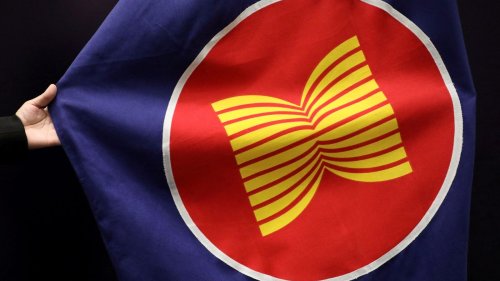By Nurul Jannah Kamaruddin
BALI, Aug 24 (NNN-Bernama) — Malaysia, Indonesia, Brunei and Philippines will form a sub-region focus group to boost existing interconnectivity for green energy sustainability.
Dadan Kusdiana, the secretary-general of the Ministry of Energy and Mineral Resources of Indonesia, said the group of countries will embark on renewable energy (RE) cooperation that can be executed immediately. He said collaborations on plant-based biofuels amid ASEAN’s abundant biomass resource will be proposed.
“We will do things that can be done immediately in the context of increasing sharing in terms of resources. Indonesia and Malaysia already have interconnectivity.
“Later Malaysia will connect with Brunei. We are still looking at Philippines. Southern Philippines is interconnected through North Sulawesi. This benefits North Kalimantan and is also good for Indonesia and Malaysia,” he told a press conference after the joint opening ceremony of the 41st ASEAN Ministers on Energy Meeting (AMEM-41) and ASEAN Energy Business Forum (AEBF) 2023.
He noted that the Kalimantan region has vast hydropower plants from both Indonesian and Malaysian companies, while the Philippines is one of the world’s top producers of geothermal power.
The region is currently interconnected via the ASEAN Power Grid (APG) project and the Trans-Asean Gas Pipeline (TAGP).
Dadan said the region needs to develop adequate RE power to achieve strong progress among member countries by delivering their commitment to deliver and address recent dynamics such as climate change, resource scarcity and technology.
Earlier, Indonesia’s Minister of Energy and Mineral Resources Arifin Tasrif, in his opening speech, stressed that to achieve sustainable growth in ASEAN, the region needs to strengthen interconnection through APG, TAGP, and “other inter-party commitments.”
Therefore, he said AMEM-41 and AEBF 2023 marked the region’s strong commitment to advancing their energy generation, especially in the field of RE.
The Asian Development Bank has estimated energy demand to grow by an average of 2 per cent annually.
“In the most ambitious scenario in the future, two-thirds of that growing energy demand can be met by RE,” Arifin said.
ASEAN, he said, has also continued to emphasize its role as the epicentre of growth with a projected 4.6 per cent growth in 2023.
AEBF is an official Asean conference and exhibition on energy that brings high-level regional and international policymakers and key business players, organised in conjunction with the annual AMEM.
Minister of Natural Resources, Environment and Climate Change Nik Nazmi Nik Ahmad is leading the Malaysian delegation to key events there.
— NNN-BERNAMA






